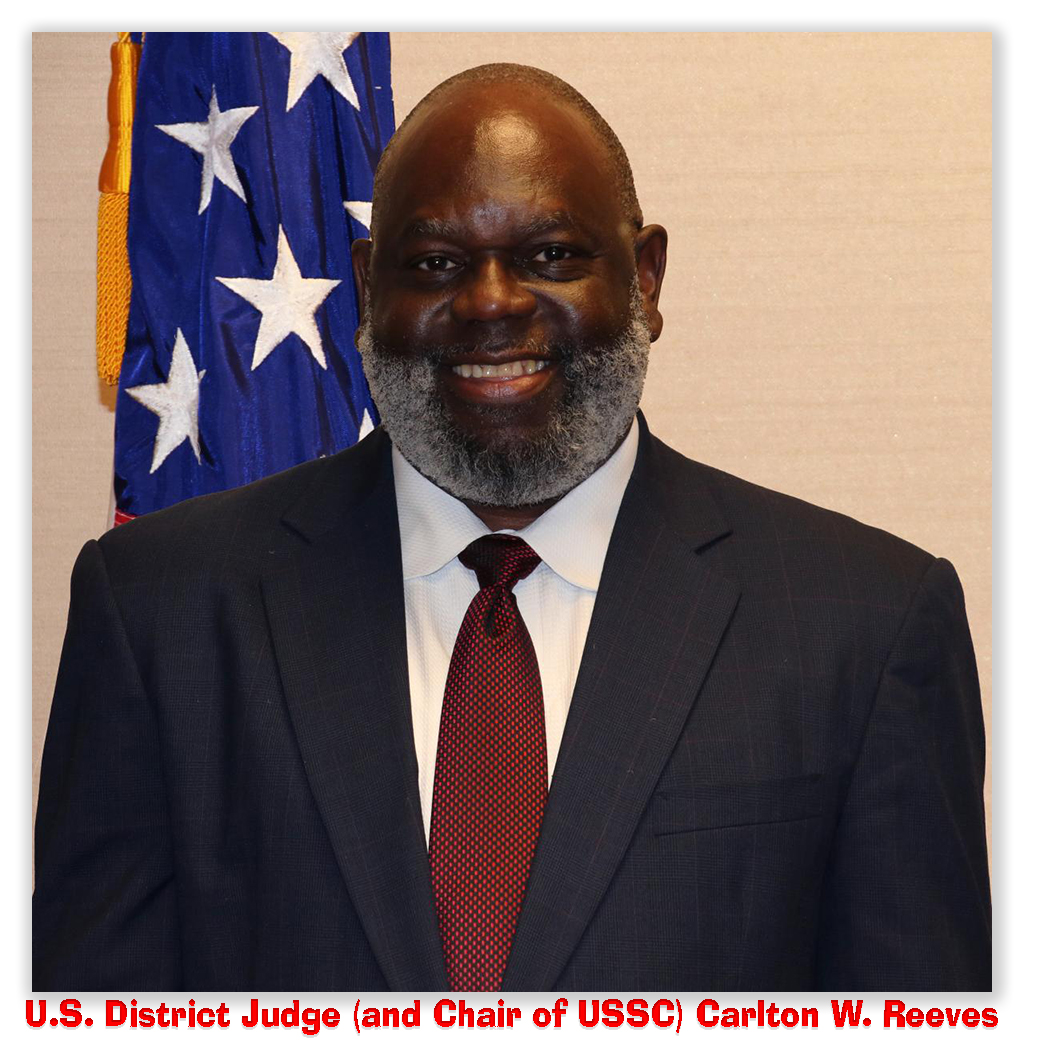We post news and comment on federal criminal justice issues, focused primarily on trial and post-conviction matters, legislative initiatives, and sentencing issues.

BRUEN CONTINUES TO EXPAND GUN RIGHTS
 For the first time, a West Texas federal judge last month ruled that 18 USC § 922(g)(5)(A) – which prohibits aliens in the country unlawfully from possessing guns or ammo – violates the 2nd Amendment in the wake of the Supreme Court’s 2022 New York State Rifle & Pistol Ass’n v. Bruen decision. The West Texas decision, which the government has appealed to the 5th Circuit, is noteworthy, as is the judge’s lament at the outset of her opinion:
For the first time, a West Texas federal judge last month ruled that 18 USC § 922(g)(5)(A) – which prohibits aliens in the country unlawfully from possessing guns or ammo – violates the 2nd Amendment in the wake of the Supreme Court’s 2022 New York State Rifle & Pistol Ass’n v. Bruen decision. The West Texas decision, which the government has appealed to the 5th Circuit, is noteworthy, as is the judge’s lament at the outset of her opinion:
The Court pauses to join the choir of lower courts urging the Supreme Court to resolve the many unanswered questions left in Bruen’s wake… In the estimate of one legal scholar who reviewed more than 300 decisions applying Bruen, “lower courts have received Bruen’s message to supercharge the 2nd Amendment, but they have not yet located its Rosetta Stone. Their collective decisions in the months since the ruling have been scattered, unpredictable, and often internally inconsistent…” Against this backdrop of uncertainty, the Court “applie[s] Bruen as well as possible in evaluating the constitutionality of” the gun laws that Sing-Ledezma is charged with violating.
Citing Bruen, the judge deemed the law prohibiting people here illegally from possessing a gun “facially unconstitutional” and “an outlier that our ancestors would never have accepted.”
Last week, the 3rd Circuit joined in the “supercharging,” ruling that a Pennsylvania law that bans 18-to-20-year-olds from carrying guns outside their homes during a state of emergency violates the 2nd Amendment. The 3rd ruled that 18-to-20-year-olds, like other subsets of the American public, are “presumptively among ‘the people’ to whom 2nd Amendment rights extend…. The Commissioner cannot point us to a single founding-era statute imposing restrictions on the freedom of 18-to-20-year-olds to carry guns… At the time of the 2nd Amendment’s passage, or shortly thereafter, the minimum age for militia service in every state became eighteen… We understand that a reasonable debate can be had over allowing young adults to be armed, but the issue before us is a narrow one. Our question is whether the Commissioner has borne his burden of proving that evidence of founding-era regulations supports Pennsylvania’s restriction on 18-to 20-year-olds’ 2nd Amendment rights, and the answer to that is no.”
The 3rd ruled that 18-to-20-year-olds, like other subsets of the American public, are “presumptively among ‘the people’ to whom 2nd Amendment rights extend…. The Commissioner cannot point us to a single founding-era statute imposing restrictions on the freedom of 18-to-20-year-olds to carry guns… At the time of the 2nd Amendment’s passage, or shortly thereafter, the minimum age for militia service in every state became eighteen… We understand that a reasonable debate can be had over allowing young adults to be armed, but the issue before us is a narrow one. Our question is whether the Commissioner has borne his burden of proving that evidence of founding-era regulations supports Pennsylvania’s restriction on 18-to 20-year-olds’ 2nd Amendment rights, and the answer to that is no.”
The ”Rosetta Stone” that the Western District of Texas court seeks – at least for people serving sentences for being felons-in-possession under 18 USC 922(g)(1) – may come in United States v. Rahimi, the 5th Circuit case now awaiting a decision from the Supreme Court. The 3rd Circuit’s Range v. Attorney General en banc ruling – that held 18 USC § 922(g)(1), as applied to a nonviolent ex-felon, violated the 2nd Amendment – is on hold at the Supreme Court until Rahimi is decided.
In a thoughtful law review note to be published in the next few weeks, Jamie McWilliam argues that
in the context of felon disarmament, the primary group of laws that the government has put forward involve disarming classes that the government deemed dangerous… [embodying] a broad theme of dangerousness… [T]o determine the scope of the dangerousness standard, courts should look to the principles embodied by the 2nd Amendment itself—in particular, defense against immediate personal violence. Ultimately, this essay suggests that only those who have actually created the kind of danger that the amendment was meant to protect against—i.e., who have perpetrated physical violence—should be disarmed. This standard may defend against potentially prejudicial discretion, while simultaneously upholding 2nd Amendment rights and protecting our community.
 Many expect the Supreme Court to adopt such a dangerous exception to Bruen, an adoption that should advance the argument that many felon-in-possession convictions – where the dangerousness of the defendant is nonexistent – violate the 2nd Amendment.
Many expect the Supreme Court to adopt such a dangerous exception to Bruen, an adoption that should advance the argument that many felon-in-possession convictions – where the dangerousness of the defendant is nonexistent – violate the 2nd Amendment.
United States v. Sing-Ledezma, Case No, EP-23-CR-823, 2023 U.S. Dist. LEXIS 223028 (W.D. Tex, December 10, 2023)
Law360, For Immigrants, Gun Rights Debate Goes Beyond Firearms (January 19, 2024)
Lara v. Commissioner, PA State Police, Case No. 21-1832, 2024 U.S. App. LEXIS 1159 (3d Cir., January 18, 2024)
McWilliam, Jamie, Refining the Dangerousness Standard in Felon Disarmament (December 4, 2023). 108 Minn. L. Rev. Headnotes (publication forthcoming ,2024)
– Thomas L. Root


















